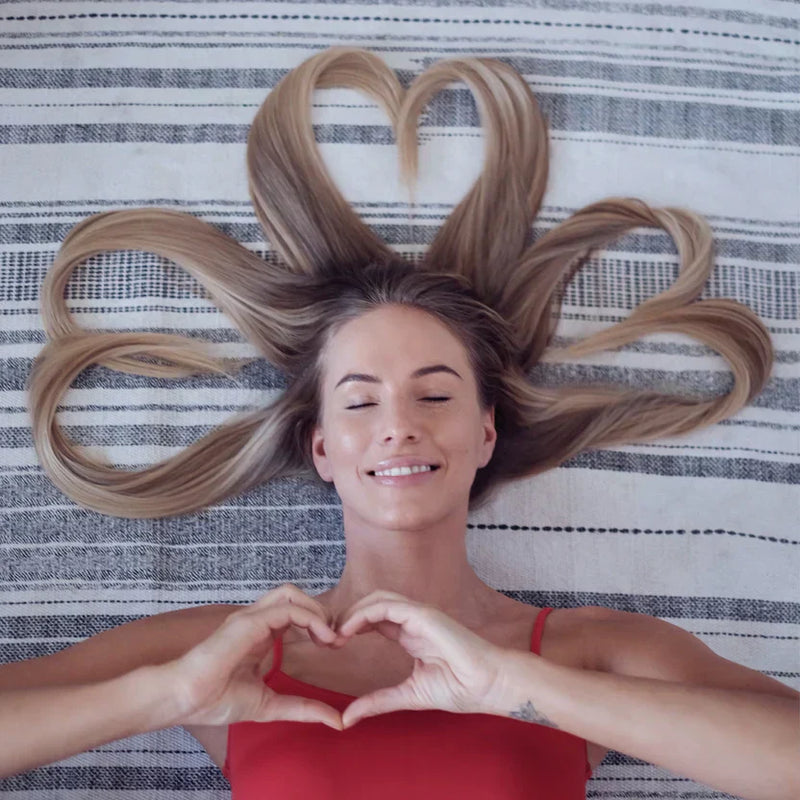
Thicker Hair — Step One, Two, Three!
Thicker Hair in One, Two, Three The desire to make fine hair appear thicker is one of many women’s quiet dreams. The real question is: how can you actually get thicker hair? While it may be disappointing, there is no overnight solution. And no, you can’t change the actual structure of your hair—it’s determined by genetics. But you can change the visual appearance of your hair, making it look and feel thicker. How to Make Hair Thicker? If you search for ways to get thicker hair, you’ll quickly find yourself navigating through countless care and styling products. But that’s not always the direct path to success. The reality is that different hair types require different care, and products that work for your friend might not work for you. With vitamins and hair ampoules, things are a bit simpler, since physiologically we are much more alike. You can support your hair in various ways—naturally and holistically, or by using the latest innovations from science. At home, natural methods like using egg-based masks, olive oil, or honey are popular. These common kitchen ingredients can be a helpful boost for making hair feel thicker. For more serious concerns, however, it’s wise to consult experts and turn to scientifically-proven products. Shampoos and conditioners developed through dermatological research are one way to help your hair gain density. But it’s not just about external care. You also need to support your hair from the inside. That means a varied, nutrient-rich diet with healthy fats, vitamins, protein, and more. If your nutrition falls short, specialized hair vitamins can fill the gap. Why Is My Hair Getting Thinner? Some people are simply born with thin hair. Even when healthy, fine strands can be difficult to style into voluminous looks. But there’s a difference when hair that used to be thick starts thinning over time. That’s when it becomes truly possible to restore volume. Hair thinning can be caused by age, medical conditions, allergies, or nutrient and vitamin deficiencies. Understanding the root cause can help you reverse the process and bring back fullness. Change Your Habits to Get Thicker Hair Reducing styling and heat tools may be necessary. That means cutting back on sprays, gels, waxes, and using fewer heated tools. High temperatures, especially, can damage hair. So take a moment to consider how often you use a hairdryer, straightener, or curling iron—and always use heat protection. On the flip side, brushing your hair more often can actually help. It distributes natural oils from the scalp to the ends, which means less greasy roots and fewer dry ends. Brushing also acts as a gentle scalp massage, stimulating blood flow. And more oxygen and nutrients reaching the hair follicles means stronger growth—one key way to support thicker hair.


